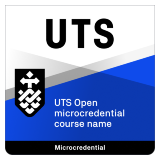This microcredential is comprised of six modules, delivered over six weeks. Each module features self-study materials, interactive activities such as quizzes, multimedia presentations, short video and audio recordings and peer critiques, as well as facilitated, online sessions. These weekly, optional live sessions provide an opportunity to apply the content to practical and authentic examples drawn from the workplace, with the course culminating in an industry led expression session.
The following content will be delivered during the course:
Begin with an exploration of inclusion, and how it affects learning designers as well as how to embrace the principles of inclusivity as part of our design practice.
Rediscover your identity, as educators and instructors, the identities of the students we design for, diversity within pedagogy and curriculum and how to enact action and change.
- Module 3: Privacy and copyright
Address one of the most challenging aspects of learning design - privacy and copyright. Examine licensing, open education and how to ensure that you remain compliant in your designs.
- Module 4: Designing for accessibility
Learn how to design for diverse learners, recognise learner needs, the WCAG Guidelines and culturally relevant education.
- Module 5: Socially just learning design
Examine what is meant by socially just learning design and how open education, UDL and social justice might inform learning design work.
- Module 6: Expression session
Engage in a practical workshop hosted by an industry expert that combines the ideas, concepts and tools developed throughout the course and puts them into practice.
Course delivery
- This microcredential includes weekly, optional online sessions facilitated by an expert UTS academic, supporting self-study and online learning activities
- The optional live sessions focus on applying the course content to practical and authentic examples drawn from the workplace
- Regular formative quizzes throughout the course allow participants to track their progress.


















